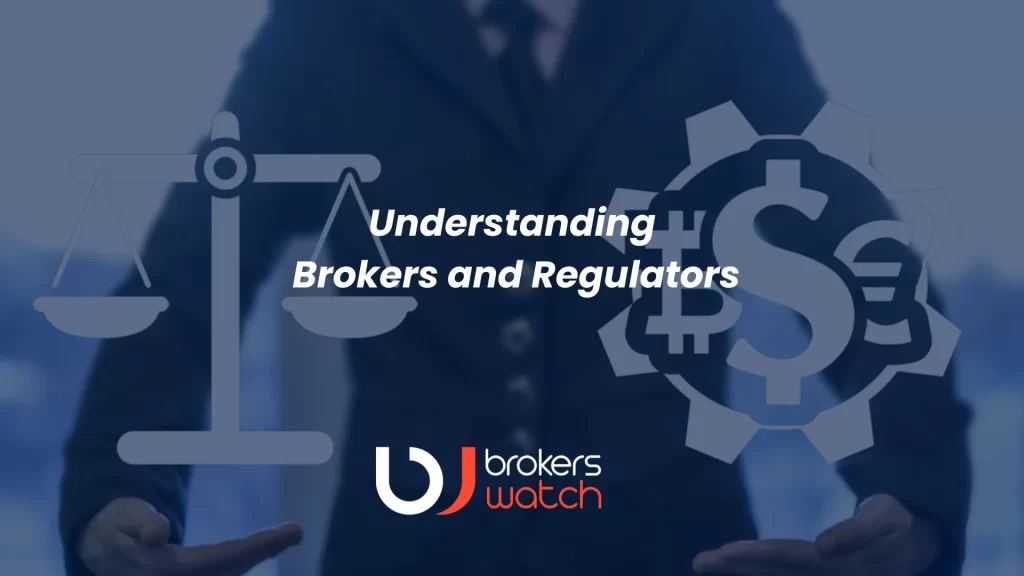Understanding Brokers and Regulators
What is a broker?
A broker is an entity that acts as an intermediary between traders and the market and can be considered your window into the financial world. A broker collects market orders from traders and executes them in the market. In other words, whenever a trader wants to buy or sell financial instruments such as stocks, currencies, futures contract etc, it must be done through a broker, you cannot trade trade directly. Brokers can be private traders making their own trading decisions with the use of an execution-only broker.
What is a Regulator?
Novice or inexperienced traders are faced with many important decisions when starting out and the broker they choose is one of the most important. Most of the time there is not much thought given to which broker to use. New traders usually trade with a broker because the traders usually found brokers through a convincing ad. It is highly unlikely that a new trader will end up with the the right and legit broker through such process. Therefore you should do your research responsibly and find the right broker.
What Regulators are Doing?
Brokers, through a licence, are regulated in certain jurisdiction and can offer their services in other jurisdictions, if permitted. In jurisdictions with well-developed regulatory frameworks, brokers applying for a license should be advised by regulators that the company has adequate financial resources, an experienced management team who knows what they are doing. They go through an extensive evaluation process that checks if they have a solid business plan. Brokers must maintain this, operate appropriate systems and controls, and report regularly. In short, regulators perform part of the broker’s due diligence on behalf of traders.
In addition, the regulator’s job is to regulate the brokers. It is not their job to tell with who you can trade, as this is up to the trader’s decision. Each country has a different approach to regulating. The main areas that regulators can seek protection in are:
Marketing: Regulators ensure that marketing by brokers is true and fair without any misleading information and that the risks are clearly mentioned to traders. For this, when you visit a brokers website which is based in Europe you will always see a notice with the % of traders that loss money with that broker.
Capitalization: Since brokers are the counterparty to traders’ transactions, regulators must set rules to ensure that brokers have enough money to pay given the risks they are taking. This must be balanced with the need for a competitive securities industry that generates a return on capital.
Client money: When a trader trades on margin, he or she must deposit money with a broker. Usually when you give money to a company, like your weekly grocery shopping, the money becomes the property of that company. This does not apply to trading. Money deposited as margin still belongs to the trader. By requesting a deposit, the broker will first ensure that you have it, then after a losing trade you will have quick access to it when it is due – and it will be the broker’s money. Therefore, there is an opportunity for brokers to mix this money with their own.In a well-developed regulatory environment, there are strict and clear rules for segregating client funds. For example, in the UK, client funds must be held in segregated bank accounts, whose management is audited. Note here:
Some jurisdictions do not have these rules.
Fair market pricing and practices: In a zero-sum OTC market, it is the broker’s job to run the market. Left unregulated, it creates an incentive for corrupt brokers to manipulate the process for their own benefit. For example, a trader clicks on the screen to place a trade, and in the split second between the click and the broker’s server receiving the trade, the price changes in the trader’s favor.
Leverage: this has been possibly the largest change in European trading over the previous few years. Regulators added a cap on how a lot leverage retail investors can alternate with, same thing Japan did approximately a decade ago. When investors win they need greater leverage to make bigger the profits, after they lose (which new investors frequently discount) the leverage amplifies the losses in same measure.
Negative balance protection: If the market is moving rapidly against the trader, the broker may not be able to make a margin call or close the trade. There is a possibility that it will be This sometimes happens during flash crashes and major market movement events. Negative balance protection requires the broker to write off what the trader owes in excess of the amount deposited at the account level.
Some Important Regulators
FCA: The Financial Conduct Authority in the UK.
ASIC: The Australian Financial Services (AFS) Licence.
CySEC: The Cyprus Securities and Exchange Commission (CySEC).
CFTC: Commodity Futures Trade Commission (CFTC).
NFA: The National Futures Association in the US.
Choose the Jurisdiction
Each trader will have their own requirements, so it is important each trader does their own research around the risks and benefits of a particular jurisdiction or broker.
Conclusion – Understanding Brokers and Regulators
This is an important decision, so don’t click on the first banner ad that promises 1000x leverage. Take your time and put regulatory protection at the forefront of the criteria you use when choosing a broker.


